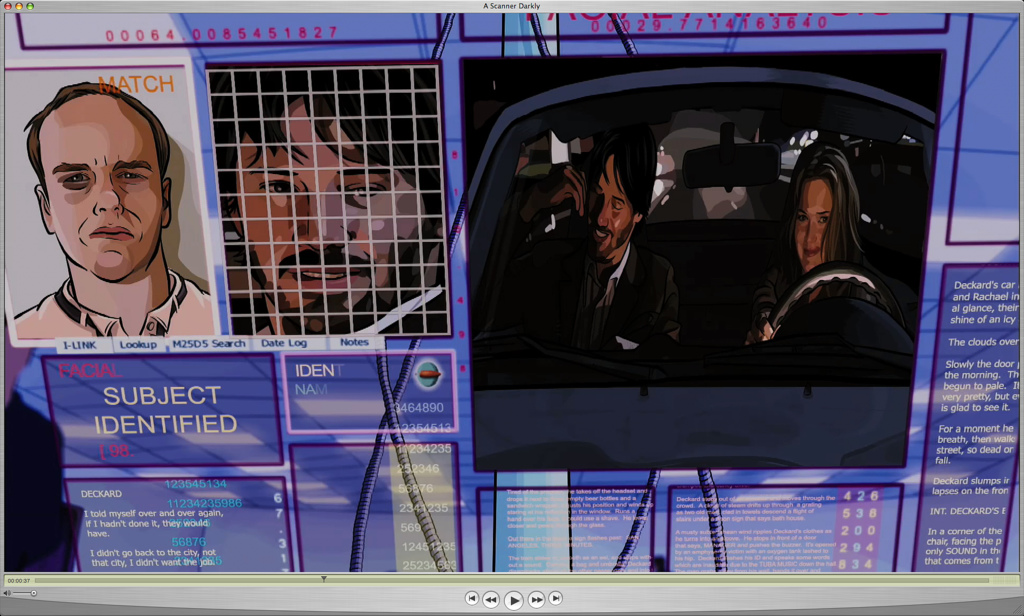A Scanner Darkly
I was recently invited to participate in a panel discussion and screening of Richard Linklater's 2006 film adaptation of Philip K. Dick's classic novel, A Scanner Darkly (1977). The event was organised by the Vasari Research Centre for Art & Technology as part of their Digital Animation Series running in 2016-17. Linklater's film is a great example to consider with regards to digital animation: the film was shot in live action and then animated in post-production using a technique known as interpolated rotoscoping (watch the video below to learn more about this process).
The film screening was introduced with a 45 minute panel discussion chaired by Dr Joel McKim (Lecturer in Media & Cultural Studies, Birkbeck) and I was joined by Dr James Burton (Lecturer in Cultural Studies & Cultural History, Goldsmiths), who has published a book on Dick, titled The Philosophy of Science Fiction: Henri Bergson and the Fabulations of Philip K. Dick (Bloomsbury, 2015). Topics discussed included Dick's autobiographical experiences with hallucinogenics, the context of 1970s Californian counterculture, messianism and Dick's late religious tract, Exegesis, and the question of genre with regards to what kind of science fiction A Scanner Darkly might be understood to be pioneering.
A podcast of the panel discussion is available below. Click on the SoundCloud file to listen to the discussion (it begins in medias res, shortly after the event had been introduced at the Birkbeck Cinema).
Featured image by Duncan Creamer under a CC BY-NC-ND license.







 Dr Caroline Edwards is Senior Lecturer in Modern & Contemporary Literature at Birkbeck, University of London. Her research and teaching specialisms are in 21st century literature and critical theory, science fiction and post-apocalyptic narratives, Marxist aesthetics, and utopianism.
Dr Caroline Edwards is Senior Lecturer in Modern & Contemporary Literature at Birkbeck, University of London. Her research and teaching specialisms are in 21st century literature and critical theory, science fiction and post-apocalyptic narratives, Marxist aesthetics, and utopianism.
Follow / Contact